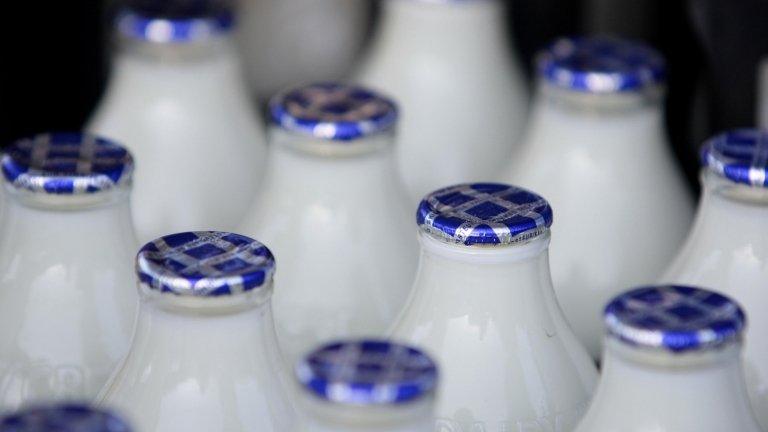Dairy farms adapt milk businesses
- Published
The price paid to farmers for their milk has been a hot topic in recent months, with many saying the money they receive is less than the cost of production.
At some farms in Hampshire and the Isle of Wight, producers have been developing different business models that bypass the usual supply chain and will, hopefully, improve their margins.
Micro-dairy farmer
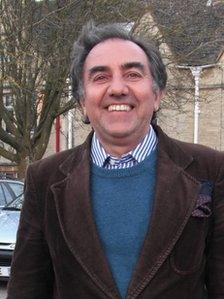
Nick Snelgar wants to process milk for small-scale farmers
Nick Snelgar, founder of farming co-operative Futurefarms, in Martin, Hampshire, won backing from the Prince's Fund to create a micro-dairy, which he hopes will be up and running in November.
He wants to encourage other small-scale farmers to get involved, allowing them to sell their milk for a fair price. He hopes local people will be willing to pay a little bit extra for his fresh, locally produced milk.
He said: "Of course, the price [is something] we'll have to explore and the costs of the processing at the moment are uncertain - to do with the cost of the power we will use to run the pasturiser, to do with the cost if we are processing somebody else's milk.
"The purpose of this site is to process not only our production but other people's as well. If that is the case we want to be able to pay that small scale farmer an excellent rate per litre for his milk because we believe in fair trade dairying."
"The thing is, the milk prices in all the various supermarkets - they probably don't relate much to the cost of production - they tend to be special offers to draw us in. It's a skewed price. We won't be skewing anything - we will display our costs."
'Buy local' campaign
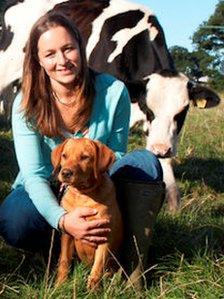
Louise Hart is helping launch branded Isle of Wight milk
Louise Hart, whose family runs Calbourne Classics, part of a farm partnership in Shalfleet, Isle of Wight, helped launch a campaign with fellow farmer Justin Birch to get people buying the island's milk.
The "I Love Isle of Wight Milk" campaign is in the process of striking a deal with supermarkets to stock the branded product, which will be processed on the island, bypassing big suppliers and cutting out a link in the supply chain.
She said: "We really want to communicate to Isle of Wight people that, at the moment, we are exporting about 80% of the milk we produce and it's passing other milk coming in across the Solent.
"It's just not viable for dairy farmers to carry on with the excessive costs of production, especially on the island.
"It's another 1.5p a litre to produce milk here so it is more costly than the mainland. Conversely, we have also got benefits in that we are the only people who can produce Isle of Wight milk so we want to turn it into a unique, niche product."
Cutting overheads
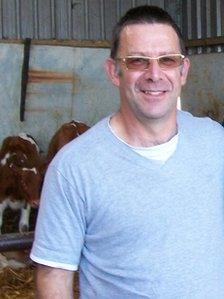
Michael Reed's farm produces nearly all of its own electricity
Michael Reed is a fourth-generation dairy farmer in Sandown.
He produces, processes and bottles all his own milk before selling through his own retail delivery business.
Any surplus milk is sold to a local cheese-making firm so none is sent off the island.
He has just taken delivery of an electric van, which is road tax exempt and has cut his diesel bill by £200 a month, and 12 months ago he installed solar panels on his farm to save money.
He said: "The solar panels have meant a £4,000 a year decrease in my electricity bills.
"We're now almost self-sufficient for our electricity. It's been a long-term investment."
- Published3 September 2012
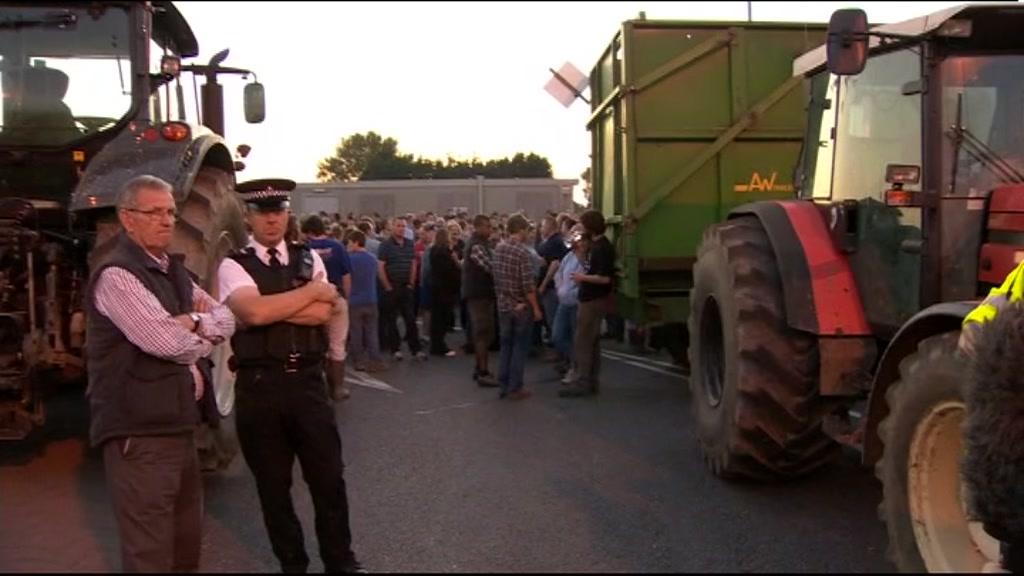
- Published21 August 2012
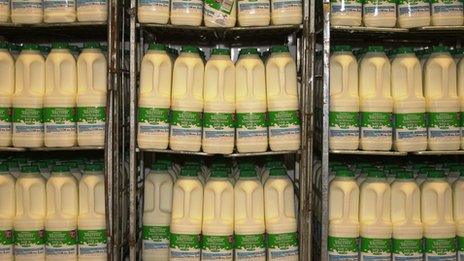
- Published11 August 2015
